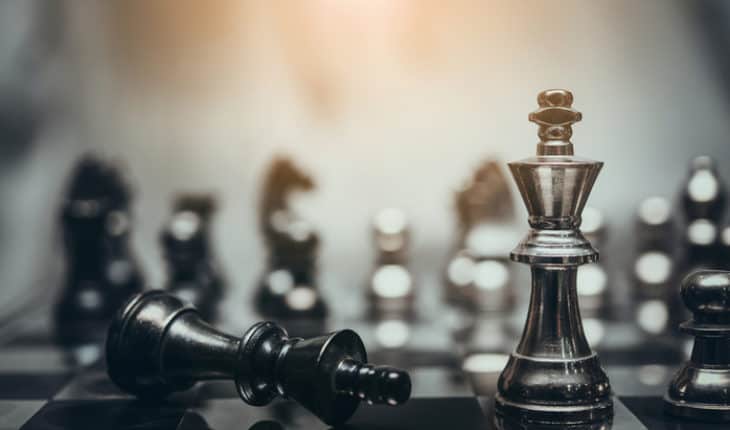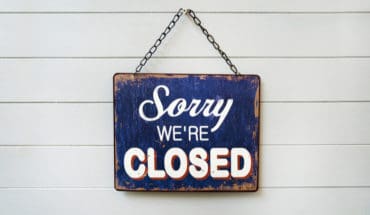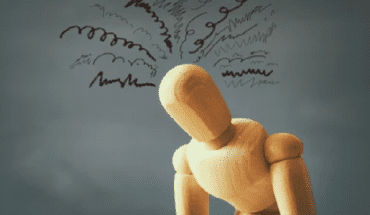Last August, in the lull between the first and second wave of the pandemic, I decided to travel to Hungary with my 7-year-old daughter. On the flight there, at 30,000 feet, the plane began to shake violently. As the “fasten seat belts” sign came on, the sky turned an ominous shade of grey. The plane rocked sharply from side to side and bounced up and down as if flying over celestial speed bumps. It seemed like the plane would break apart any second. Passengers yelped in fear as the pilots tried desperately to retain control of the aircraft.
At the height of the turbulence, I thought “we might die here. I should comfort my daughter.” I looked to my right, where she was sitting, ready to hold her trembling hand. To my amazement, she was absorbed in a chess game on her iPad, impervious to the chaos around her. Neither the jolts nor the screams could distract her from her battle against the chess robot. I dared not disturb her.
Death and chess are old companions, appearing together in murals in the 15th century. They feature in Ingmar Bergman’s 1957 movie masterpiece, The Seventh Seal. A medieval knight encounters the personification of death on a Swedish beach during the Black Death. “Wait a moment”, the knight begs, as Death approaches with open arms. “You all say that”, Death responds. The knight proceeds to challenge Death to a game of chess, proposing that if he wins, Death spares him. Death, who remarks that he is “quite a skilful chess player”, agrees.
In the United Kingdom, where I live and work, the government’s efforts against the COVID pandemic can be seen through the lens of a chess match. At present, the position on the board is tense. The government is mounting a dangerous attack on the enemy king with mass vaccinations but earlier miscalculations, such as delaying lockdowns and relaxing restrictions, has allowed Death to launch its own assault and threatens to overwhelm our defences, the NHS. Already some pieces have been sacrificed in a bid to scupper the attack, like the non-COVID patients whose treatments have been delayed to prioritise the care of COVID victims.
Over the summer, with checkmate a few moves away, the government became complacent and allowed the weakened virus to counter-attack. It mishandled the endgame, allowing the opponent’s pawn to reach the other side of the board where it mutated into a nimble queen and continues to wreak havoc on our side of the board.
The 19th century chess master Johannes Zukertort remarked that “chess is the struggle against error” and so too is this complicated, drawn out, and exhausting contest against Death. With every move, every decision, comes the risk of making a terrible, even irreversible mistake – what chess players call a blunder. Flawless play is impossible, as this pandemic has amply demonstrated, but we can reduce errors by carefully considering the opponent’s threats, anticipating the consequences of our moves – “if I play this move, such as allowing households to mix or restaurants to stay open, what will happen?” – and adopting a longer term strategy that looks beyond the immediate move ahead.
In the Seventh Seal, as checkmate looms, the knight spots a young couple and their baby nearby. To give them time to flee Death, he knocks over the chess pieces with mock carelessness. “I’ve forgotten the position of the men”, the knight says. “Well, I haven’t” retorts Death, smiling as he places the pieces back on the board and the family escapes behind him.
On that convulsing plane last August, I like to think that Death was similarly distracted by my daughter’s game of chess and let us live a while longer.
As a society, however, we should not expect such an easy reprieve. On 13th January 2021, there were a record 1,564 new COVID-19 fatalities in the United Kingdom and Professor Chris Witty has warned of further high numbers in the days and weeks to come. Some of these deaths will no doubt be the result of a blunder over Christmas when the rules against household mixing were relaxed. The government must learn from its mistakes and make better moves in the future.
Sokol is a barrister, medical ethicist and occasional chess player.
- Life, death, COVID-19 and chess - 18th January 2021







